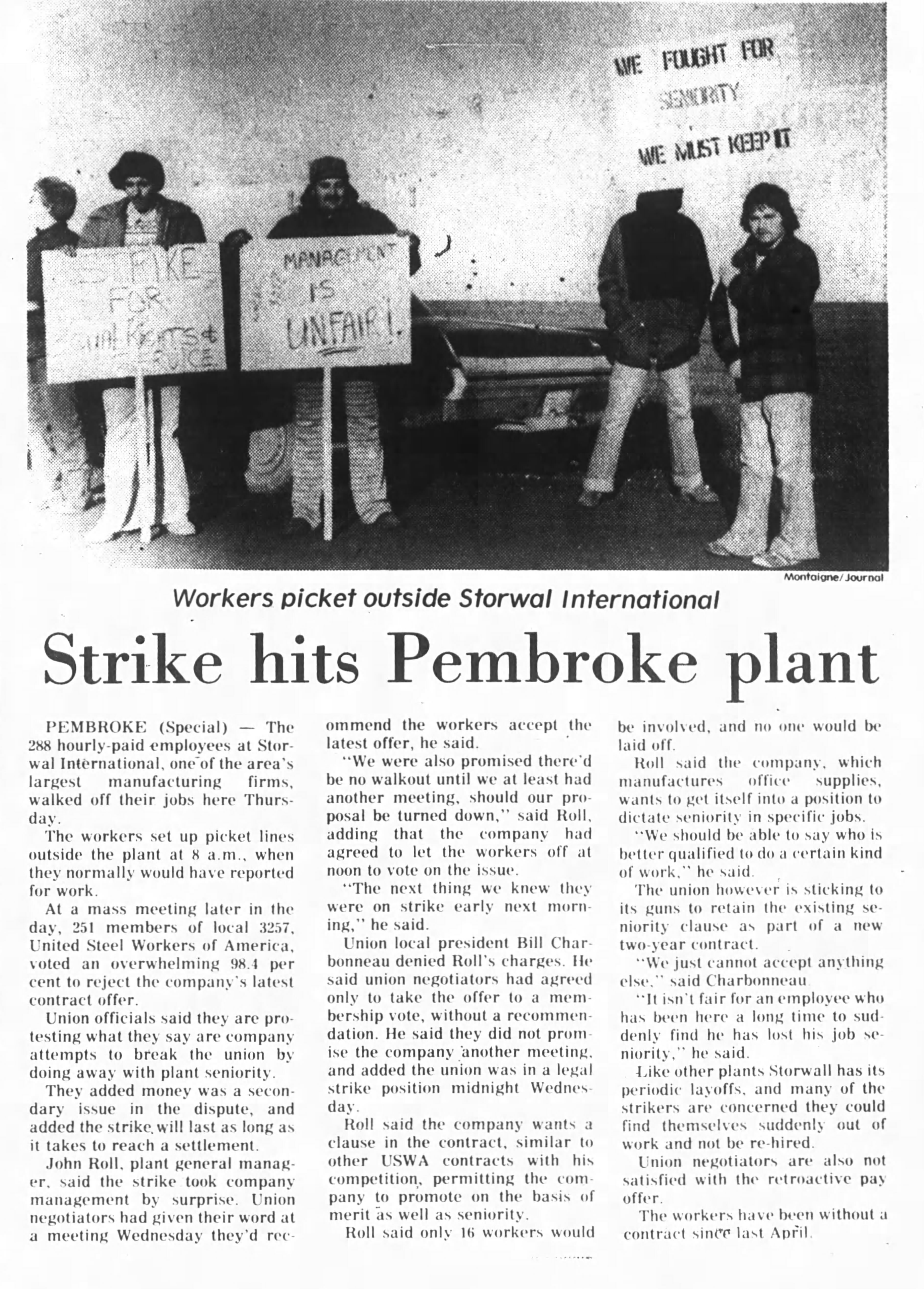Rough Beginnings
In 1978, Storwal workers, unionized under the United Steel Workers of America, faced their first major crisis. On September 28, 288 workers walked off the job. The union believed that the company was trying to break the union by removing plant seniority. Storwal had occasional layoffs and many workers worried they would lose their positions permanently. Wages were a secondary issue.
1978